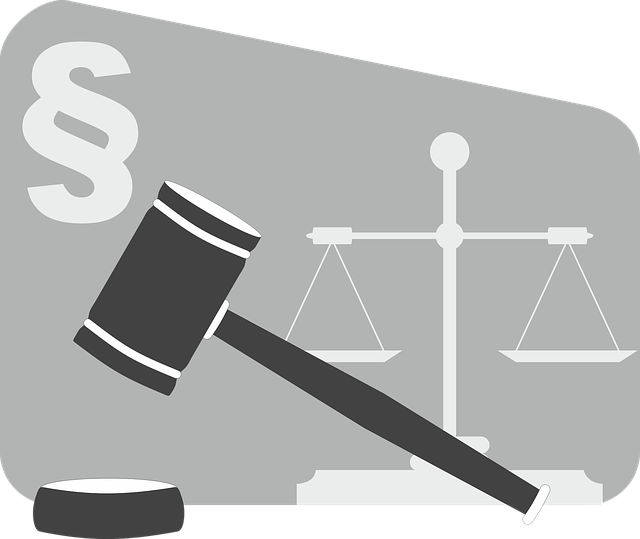Regulatory fraud laws protect consumers, investors, and businesses by holding individuals and entities accountable for deceptive practices, with a focus on healthcare industry misrepresented financial info, concealed material facts, and corrupt practices. Healthcare providers act as guardians against fraud, leveraging their frontline position to identify suspicious activities and reporting them to authorities. When facing fraud allegations, healthcare providers require specialized legal dispute assistance from white-collar and economic crimes lawyers who defend against charges, provide strategic guidance, and help clients understand their rights within regulatory frameworks.
In the complex healthcare landscape, understanding regulatory fraud laws is paramount for both providers and patients. This comprehensive guide delves into the intricacies of these laws, focusing on their impact on healthcare delivery. We explore critical aspects such as the role of healthcare providers in fraud prevention and detection, legal dispute resolution strategies tailored to address allegations, and essential compliance techniques to mitigate risks. By understanding these key elements, healthcare providers can ensure ethical practices and patient trust.
- Understanding Regulatory Fraud Laws: A Comprehensive Overview
- The Role of Healthcare Providers in Preventing and Detecting Fraud
- Legal Dispute Resolution: Assistance for Healthcare Providers Facing Fraud Allegations
- Strategies for Compliance and Mitigating Legal Risks in Healthcare
Understanding Regulatory Fraud Laws: A Comprehensive Overview

Regulatory fraud laws are designed to protect consumers, investors, and businesses from deceptive practices by holding individuals and entities accountable for their actions. These laws cover a wide range of activities, including misrepresenting financial information, concealing material facts, and engaging in corrupt practices within various industries, with a particular focus on sectors like healthcare. Understanding these regulations is crucial for healthcare providers to avoid legal disputes and potential indictment.
For his clients, navigating the complex web of regulatory fraud laws can be daunting. However, seeking legal assistance from experts specialised in healthcare provider legal dispute support is an essential step in ensuring compliance and protecting one’s respective business interests. This proactive approach enables businesses to stay ahead of regulatory changes and mitigate risks associated with fraudulent activities.
The Role of Healthcare Providers in Preventing and Detecting Fraud

Healthcare providers play a pivotal role in preventing and detecting regulatory fraud. They are on the front line when it comes to patient care and billing practices, making them crucial in identifying suspicious activities. By staying up-to-date with industry regulations and implementing robust internal controls, healthcare providers can significantly reduce the risk of fraud. This includes regular staff training on compliance matters and establishing clear protocols for coding, billing, and claims processing.
Moreover, healthcare providers are equipped to recognize patterns indicative of fraudulent behavior, such as excessive or unnecessary services billed or suspicious patient information. In the event of a suspected fraud, these providers can report it to the appropriate authorities, which may lead to legal dispute assistance for both the provider and patients involved. With the help of specialized legal counsel experienced in white collar defense and economic crimes, healthcare providers can navigate complex regulatory environments and ensure the complete dismissal of all charges when warranted.
Legal Dispute Resolution: Assistance for Healthcare Providers Facing Fraud Allegations

When healthcare providers face fraud allegations, navigating a legal dispute can be daunting. The complexity of healthcare regulations and the high stakes involved in such cases necessitate specialized support. Many healthcare professionals turn to attorneys with expertise in white-collar and economic crimes, ensuring they receive legal dispute assistance tailored to their unique needs. These lawyers are adept at defending against charges, providing strategic guidance, and helping clients understand their rights within the regulatory framework.
With their deep knowledge of these intricate matters, legal counsel can assist healthcare providers in distinguishing between legitimate business practices and potential violations. They offer a robust defense strategy, advocating for their clients while addressing any misconduct subtly. This approach not only helps in resolving disputes effectively but also enables healthcare providers to learn from the experience, fortifying their compliance measures moving forward.
Strategies for Compliance and Mitigating Legal Risks in Healthcare

To ensure compliance with regulatory fraud laws, healthcare providers must implement robust internal controls and risk management strategies. This includes meticulously documenting procedures, maintaining transparent records, and regularly conducting audits to identify and rectify potential vulnerabilities. By fostering a culture of ethical conduct and promoting open communication, healthcare organizations can better navigate the complex landscape of regulatory requirements.
Should a legal dispute arise, engaging specialized Healthcare Provider Legal Dispute Assistance can significantly mitigate risks. Experienced attorneys specializing in general criminal defense can help their clients avoid indictment by providing strategic guidance tailored to the unique challenges of healthcare regulations. This proactive approach not only protects against severe legal consequences but also strengthens the organization’s commitment to ethical practice.
Regulatory fraud laws play a pivotal role in upholding integrity within the healthcare sector. By understanding these laws, healthcare providers can actively prevent and detect fraudulent activities, ensuring patient safety and maintaining ethical standards. In cases of legal disputes, specialized assistance is crucial to navigate complex allegations effectively. Adopting robust strategies for compliance and risk mitigation enables healthcare providers to operate with confidence, knowing they are shielded against potential legal challenges, thereby fostering a culture of transparency and trust in the industry.






